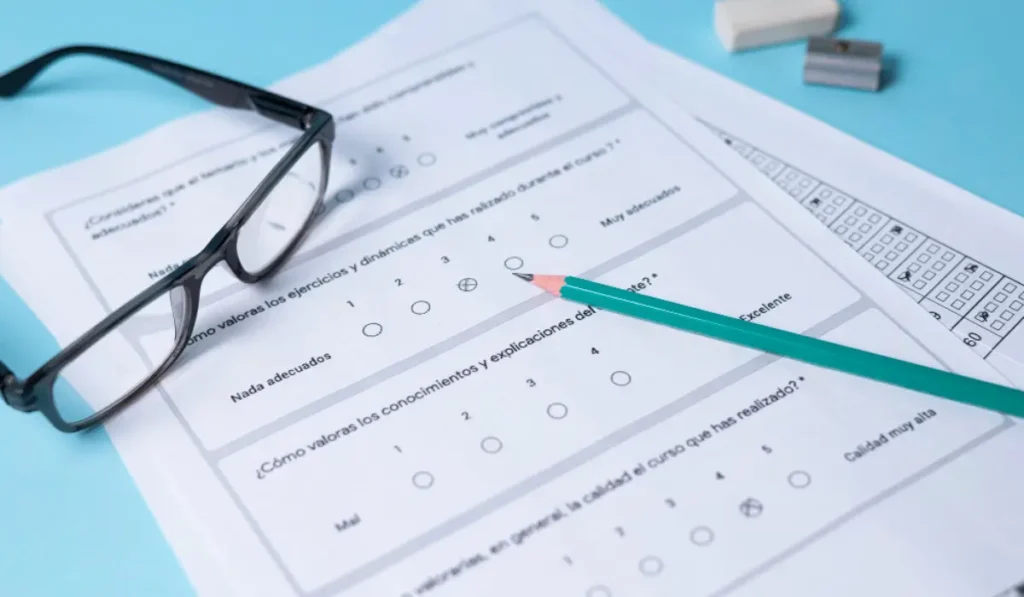The Medical and Dental College Admission Test (MDCAT) is a standardized entrance exam in Pakistan that plays a pivotal role in determining eligibility for MBBS (Bachelor of Medicine, Bachelor of Surgery) programs.
For students with a passion for medicine, this test is an essential milestone that helps universities assess applicants’ knowledge and readiness.

This article offers a comprehensive look at the MDCAT, covering everything from its structure and significance to practical preparation tips and scoring details.
To understand more about the scope of MBBS in Pakistan, including career opportunities and job prospects, check out our detailed guide.
Who Conducts the MDCAT in Pakistan?
The Pakistan Medical Commission (PMC) oversees the organization and administration of the MDCAT. As the central regulatory authority for medical education, PMC ensures that the test process remains consistent, transparent, and fair for all applicants nationwide.
Every year, the PMC sets the exam date, issues the syllabus guidelines, establishes eligibility criteria, and manages both registration and results.
By standardizing these processes, the PMC guarantees that all candidates are evaluated equally, helping uphold the quality of medical education in Pakistan.
Why is the MDCAT Important for Aspiring MBBS Students in Pakistan?
For aspiring doctors, the MDCAT serves as the primary path to enter medical colleges in Pakistan. It fulfills several critical roles:
- Standardized Evaluation: MDCAT measures students’ grasp of core subjects like biology, chemistry, physics, and logical reasoning—all crucial for future medical study.
- Screening Tool: It ensures that only qualified, knowledgeable candidates advance in the admissions process, supporting the quality of future medical professionals.
- Admission Requirement: Almost every public and private medical college in Pakistan requires MDCAT scores, making the exam indispensable for prospective students.
In essence, the MDCAT acts as a benchmark that supports the credibility and high standards of Pakistan’s medical education system.
What are the Eligibility Criteria for Taking the MDCAT in Pakistan?
To be eligible for the MDCAT, applicants must fulfill certain criteria:
- Education: Students should have completed their Higher Secondary School Certificate (HSSC) or an equivalent qualification (like A-Levels) with a minimum of 60% marks. Those awaiting HSSC results can register for MDCAT but must submit their results before admission.
- Age Limit: There’s no age restriction, but candidates must meet the educational requirements.
- Nationality: Both Pakistani nationals and international students are welcome to take the MDCAT, provided they meet the academic criteria. Overseas Pakistanis may need additional documents for eligibility verification.
Meeting these criteria helps ensure that candidates are prepared for the rigorous content of the MDCAT.
What Subjects are Included in the MDCAT Exam?
The MDCAT assesses candidates in subjects essential for medical studies:
- Biology: Covers topics like cell biology, genetics, physiology, microbiology, and introductory human anatomy.
- Chemistry: Tests knowledge of organic and inorganic chemistry, chemical reactions, atomic structures, and the basics of biochemistry.
- Physics: Includes mechanics, thermodynamics, waves, and electromagnetism, with a focus on applications in medicine.
- English: Measures grammar, vocabulary, reading comprehension, and sentence structure.
- Logical Reasoning: Evaluates analytical thinking, problem-solving skills, and information interpretation.
These subjects lay the groundwork needed for success in medical studies.
How Can I Register for the MDCAT in Pakistan?
To register for the MDCAT, follow these steps:
- Visit the PMC Website: Registration is typically conducted online via the official PMC portal.
- Complete the Application Form: Provide details like personal information, academic history, and contact information.
- Upload Required Documents: Necessary documents include CNIC/B-form, recent photos, and academic certificates.
- Pay the Registration Fee: The fee can be paid online or through designated bank branches.
- Submit the Form: Review all information carefully to avoid errors that could delay the process.
Once registered, candidates receive a confirmation email with their test schedule and other instructions.
What is the Format of the MDCAT Exam?
The MDCAT format is structured to test students’ scientific knowledge and analytical skills comprehensively:
- Total Questions: 200 multiple-choice questions (MCQs)
- Sections:
- Biology: 68 questions
- Chemistry: 54 questions
- Physics: 54 questions
- English: 18 questions
- Logical Reasoning: 6 questions
- Duration: 3.5 hours
- Scoring: Each correct answer awards one mark, with no negative marking.
This balanced structure ensures a thorough evaluation across key subjects.
How to Prepare Effectively for the MDCAT?
Preparation is key to achieving a high MDCAT score. Here are some helpful strategies:
- Understand the Syllabus: Focus on high-yield topics outlined in the official syllabus.
- Create a Study Plan: Dedicate specific study hours for each subject, especially areas where you need improvement.
- Practice MCQs: Regularly solve practice questions and past MDCAT papers to get comfortable with the exam format.
- Use Reliable Resources: Opt for well-recommended study guides, textbooks, and online resources aligned with the MDCAT syllabus.
- Take Practice Tests: Mock exams simulate the actual test environment, helping you identify areas to improve.
- Focus on Time Management: Practicing under timed conditions is essential to avoid time crunches on the test day.
By focusing on consistent preparation and reinforcing weaker areas, candidates can improve their scores.
What are the Passing Criteria for the MDCAT in Pakistan?
The PMC has set a minimum passing score of 65% for the MDCAT. This means candidates need to score at least 130 out of 200 to qualify for MBBS admissions.
This requirement ensures that successful candidates have a foundational understanding of essential scientific concepts, preparing them for the demands of medical programs.
When are the MDCAT Results Announced in Pakistan?
MDCAT results are typically available within a few weeks of the test date. Students can view their scores on the PMC website by entering their roll numbers.
Once published, candidates can download their scorecards, which they will need during the admissions process.
How is the MDCAT Score Used in the MBBS Admissions Process?
The MDCAT score is a crucial part of the MBBS admission process:
- Merit Calculation: Many universities combine MDCAT scores with academic records to determine merit.
- Admission Ranking: Higher scores boost a candidate’s chance of admission to top-tier public medical colleges.
- Weightage: The MDCAT score usually accounts for a significant portion, often around 50%, of the final admission score.
High MDCAT scores are essential for candidates aiming to join prestigious medical institutions.
What are Some Tips for Scoring High on the MDCAT?
Here are extra tips to maximize your MDCAT score:
- Prioritize Difficult Subjects: Spend more time on challenging topics or subjects.
- Regularly Review: Periodic reviews help reinforce knowledge and reduce last-minute stress.
- Stay Healthy: Quality sleep, a balanced diet, and regular breaks enhance focus and reduce stress.
- Group Study: Discussing topics with peers can help broaden understanding.
- Time Yourself: Practice answering questions under timed conditions to mimic the exam.
These strategies can optimize study routines and performance on test day.
Where Can I Find Practice Tests and Previous MDCAT Papers?
Several resources can aid MDCAT preparation:
- PMC Website: Sample papers and practice tests are often available here.
- Bookstores: Many bookstores offer MDCAT prep books and past paper collections.
- Online Platforms: Websites like ilmkidunya and Pakprep offer practice tests and resources.
- Coaching Centers: Some centers provide MDCAT-specific study materials and mock exams.
Using various resources can enhance preparation and familiarity with the exam format.
FAQs:
- How often is the MDCAT conducted?
Annually, typically between August and September. - Can I retake the MDCAT if I don’t pass?
Yes, candidates can retake it the following year. - Is the MDCAT score valid for international medical colleges?
It is mainly for Pakistan’s colleges. For international admissions, other tests may be required. - Are calculators allowed in the MDCAT?
No, calculators and electronic devices are prohibited. - What is the cost of MDCAT registration?
The fee varies yearly, so check the PMC website for current details.
Conclusion:
The MDCAT is a pivotal step for future medical students in Pakistan, setting the stage for a healthcare career. Covering everything from eligibility to preparation, this guide aims to equip candidates with the insights needed to succeed.
By understanding the MDCAT and dedicating ample time to preparation, students can make meaningful strides toward their dream of pursuing an MBBS in Pakistan.

